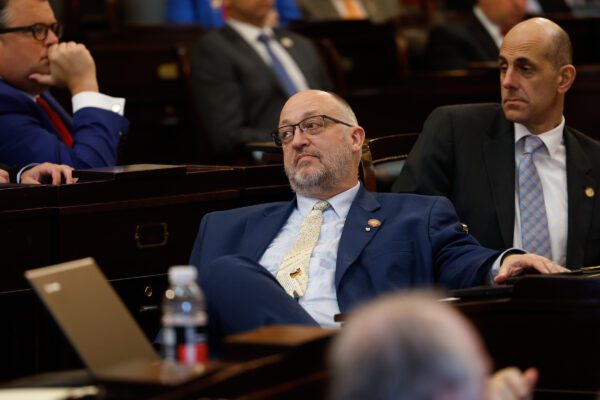By Marilou Johanek, Ohio Capital Journal, Used with Permission

If your local school district had a levy on the ballot last month, chances are it lost. Most did. That means losing districts may cut courses, counseling services, staff, busing, building. It means increasing budget deficits. It also means increasing class sizes, pay-to-participate fees, and public school students making do with less.
Imagine what a billion dollar windfall from the state legislature would mean to school districts struggling to balance their budgets with less? Now imagine that billion dollar bonanza from the General Assembly going instead to private, mostly religious schools. Spoiler alert: the private school money train is real and your tax dollars are driving it. What’s wrong with that picture?
Ohio taxpayers didn’t get a vote on paying for the private school decisions of mainly white, often affluent parents who can afford the parochial schools and pricey college prep institutions their kids already attend. But, thanks chiefly to Ohio Senate President Matt Huffman, the premier advocate of state-funded Catholic education, unknowing voters were roped into subsidizing the non-public school selections of thousands of Ohio families — including many who make north of $250,000 a year.
Never mind that your school district can hardly keep up with inflation and rising operating costs to maintain or renovate 60-year-old buildings, let alone construct new ones. School administrators have to come to you, hat-in-hand, to beg repeatedly for funding the state won’t provide. But the gerrymandered GOP supermajority in the Statehouse doesn’t care about the fiscal distress at your district or how the latest levy defeat will adversely impact students.

Ohio Republicans care about diverting a ton of taxpayer money (desperately needed by cash-strapped, levy-dependent districts) to benefit private school families, regardless of income or need, who choose to send their darlings to diocesan grade schools and religious high schools. That is certainly their right. Plenty of parents decide private school is the preferred option for their progeny. Good for them.
But that individual choice is a private value, a private good being wrongly underwritten by hundreds of millions of limited public funds not going to advance the common good of a public school system that accepts all and serves nearly 90% of Ohio students. Those finite funds for education in the state budget are flying out the door to serve the few — just over 8% of students in the state go to private schools — who freely chose a tuition-based education over the free public instruction we collectively support with our taxes.
But GOP lawmakers, who made funding private education a priority years ago, have been starving public schools of adequate and equitable state aid for a long time. With Huffman at the helm, Republicans unleashed a flood of tax revenue to boost the fortunes of private schools and swell enrollment at parish grade schools and religious high schools. GOP legislators continued inflating their massive giveaway of taxpayer dollars to private schools while remedies to fix the unconstitutional funding formula for public schools languished for decades.
State handouts to private education exploded from over $69 million in 2008 to over $360 million in fiscal year 2019, a 416% jump! But that’s nothing compared to the 2023-2024 school year when state-funded tuition coupons (aka vouchers) to private school parents went through the roof. Again, thanks to Huffman’s singular zealotry to privatize public education out of business, expanded state vouchers — paid from the same line item in the budget that funds public schools — are on track to hit $1 billion by June.
Your tax dollars at work, but not for you or your public schools or the vast majority of students in Ohio.
This unprecedented government largesse to church-related private schools in the state is on an alarming trajectory that has no cap or public accountability. It’s a boatload of easy money from the state with zero strings attached. How great is that for families with the means to send their kids to private schools but can now do it on the taxpayer’s dime??
Of course, Catholic dioceses in Ohio and elite private high schools are aggressively encouraging their families to exploit the state’s voucher gimmes to the fullest. The government spigot for private education is wide open and there’s lots more where that came from if Huffman has his way. He quickly scrapped the passé requirement that state-paid tuition checks only go to low-income recipients burdened with failing area schools.
With passage of universal vouchers last year for anyone attending private schools, Huffman dropped the pretense previously used to justify public financing of religious teaching and dissolved pre-conditions to qualify for free state bucks to bankroll private choices. The 2024-2025 school year could well surpass the anticipated $1 billion mark this year as more private school families take advantage of the voucher gravy train that doesn’t stop at public schools.
Huffman wants to go further. Publicly-funded construction of private schools. Other Republicans expect taxpayers to foot the bill for private, non-chartered schools whose deeply held religious beliefs put them beyond the state’s educational grid. Where does it end? Ask any public school district eying harsh cutbacks after last month’s levy defeat.
Better yet, ask levy-fatigued taxpayers in Ohio, who never agreed to subsidize private education at the expense of their local schools, for their vote on the matter.
Bruce Gerencser, 66, lives in rural Northwest Ohio with his wife of 45 years. He and his wife have six grown children and thirteen grandchildren. Bruce pastored Evangelical churches for twenty-five years in Ohio, Texas, and Michigan. Bruce left the ministry in 2005, and in 2008 he left Christianity. Bruce is now a humanist and an atheist.
Connect with me on social media:
Your comments are welcome and appreciated. All first-time comments are moderated. Please read the commenting rules before commenting.
You can email Bruce via the Contact Form.












